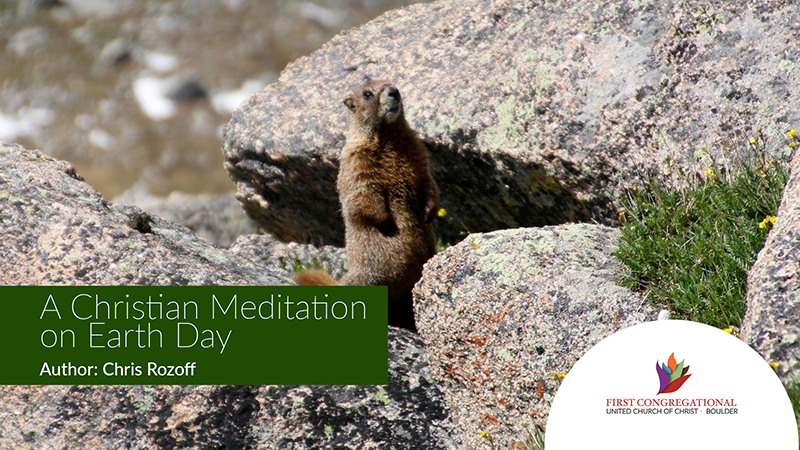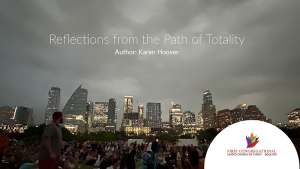You can listen to this week’s Devotional here
Author: Chris Rozoff
In Psalm 104, the Bible conveys the idea of ecosystems in God’s creation. In a most poetic way, Psalm 104 (NIV Version) states God “makes springs pour water into the ravines; it flows between the mountains. They give water to all the beasts … the birds of the sky nest by the waters; they sing among the branches. He makes grass grow for the cattle, the plants for people to cultivate — bringing forth food from the earth … The trees of the Lord are well watered, the cedars of Lebanon that he planted. There the birds make their nests; the stork has its home in the junipers. The high mountains belong to the wild goats; the crags are a refuge for the hyrax.” (Hyraxes look like pikas and marmots but are more closely related to elephants.)
“He made the moon to mark the seasons, and the sun knows when to go down. You bring darkness, it becomes night, and all the beasts of the forest prowl. The lions roar for their prey and seek their food from God. The sun rises, and they steal way; they return and lie down in their dens. Then people go out to their work, to their labor until evening.
How many are your works, Lord! In wisdom you made them all.”
When I revisit these biblical verses, not only am I struck by how relevant this ancient text is to our contemporary understanding of ecosystems, the beautiful writing lucidly transports me to my memories of sacred places in the wild, such as a crystalline, aquamarine high-elevation lake on a midsummer day, the wooded shore of a northern Ontario lake, or even an urban oasis such as Central Park in Manhattan, where there are at least some vestiges of ecological autonomy beyond the grasp of the best human-engineered simulacrums of nature. In these clear mental images, I envision a marmot climbing a rock, hear the plangent and melancholy call of a loon, smell the fragrant flowers and vegetation soaking in the sun, and feel a cool breeze.
I try to get immersed in real natural spaces when I can. It’s embarrassingly easy for us to do in Colorado. In these spaces, I can escape outside of myself if I allow for it. Intentionally breaking free of the normal stresses and routines of day-to-day obligations, the profundity of the wild can sometimes crack open our shells and expose our senses to an infinite realm of possibility and mystery. It is here we begin to marvel at a complex ecosystem that came into perfect being over millions of years, a system impressively adaptable to the sometimes-cruel ravages of change. Here, the face of God is partially but powerfully revealed, and we begin to appreciate that we are a participant in something indescribably important.
We are awe-struck and summoned to protect the precious gift of Creation. In this time of ecological crises, may we all awaken to our responsibility of being stewards of an inhabitable planet so auspicious to the miracle of life. May we continue to be inspired by what remains of the wild places across the planet. We were born in this exigent era; thus, it is our calling.


